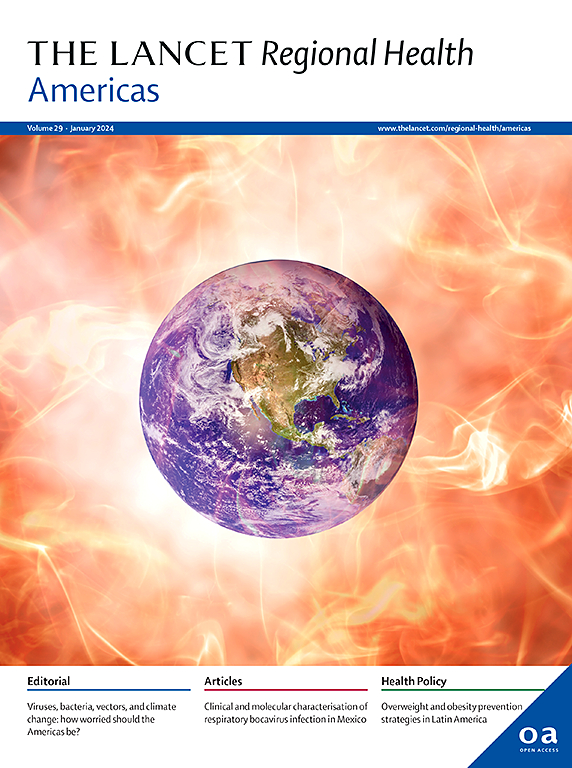Three versus six sessions of problem-solving training with or without boosters for care partners of adults with dementia (CaDeS): a randomised controlled optimization trial
IF 7
Q1 HEALTH CARE SCIENCES & SERVICES
引用次数: 0
Abstract
Background
Problem-Solving Training/Descubriendo Soluciones Juntos (PST/DSJ) can improve emotional consequences of caregiving. We assessed the number of sessions and boosters needed for reducing caregiver burden and depressive symptoms among Alzheimer’s disease and related dementias (ADRD) care partners.
Methods
We conducted a randomised factorial-design trial of bilingual PST/DSJ among ADRD care partners (NCT04748666). Participants were randomly assigned (blocks of 8 stratified by language) to 3 PST/DSJ sessions with (n = 19) or without (n = 21) boosters or 6 PST/DSJ sessions with (n = 28) or without (n = 29) boosters. The Zarit Burden Interview measured caregiver burden and Patient Health Questionnaire (PHQ-8) measured depressive symptoms at baseline, after sessions, and after boosters.
Findings
Ninety-seven care partners participated in the study (93% of those randomised) between June 2021 and July 2023 (n = 80 women, 83%). Ninety-five were included in intention-to-treat analysis (98% retention). For caregiver burden, all groups improved significantly over time (Estimate = −0.40, p = 0.004, Cohen’s D = 0.31), with no difference between intervention groups. For depressive symptoms, there was a main effect of time (Estimate = −0.16, p = 0.005, Cohen’s D = 0.33) indicating overall improvement regardless of group. Within group effect sizes (Cohen’s D = 0.17–0.51) suggest larger improvement with 6 sessions (Cohen’s D = 0.28–0.51) than 3 sessions (Cohen’s D = 0.17–0.41). No adverse events occurred.
Interpretation
Neither the number of sessions nor boosters resulted in differential efficacy for caregiver burden and depressive symptoms, though six sessions and boosters yielded the largest effect sizes. These results can inform the implementation of an evidence-based, bilingual problem-solving intervention to reduce burden and improve mood among diverse dementia care partners.
Funding
Texas Alzheimer’s Research and Care Consortium [TARCC 2020-06-25-CR].
有或没有助推器的成人痴呆(CaDeS)护理伙伴解决问题的训练:一项随机对照优化试验
问题解决训练/解决问题训练(PST/DSJ)可以改善照顾的情绪后果。我们评估了在阿尔茨海默病和相关痴呆(ADRD)护理伙伴中减少照顾者负担和抑郁症状所需的疗程和助推器的数量。方法在ADRD护理伙伴(NCT04748666)中进行双语PST/DSJ的随机因子设计试验。参与者被随机分配(按语言分层的8个组)到3个有(n = 19)或没有(n = 21)助推器的PST/DSJ组,或6个有(n = 28)或没有(n = 29)助推器的PST/DSJ组。Zarit负担访谈测量照顾者负担,患者健康问卷(PHQ-8)测量基线、治疗后和增强后的抑郁症状。在2021年6月至2023年7月期间,97名护理伙伴参与了这项研究(其中93%是随机分配的)(n = 80名女性,83%)。95例纳入意向治疗分析(保留率98%)。对于照顾者负担,所有组随着时间的推移均显著改善(Estimate = - 0.40, p = 0.004, Cohen’s D = 0.31),干预组之间无差异。对于抑郁症状,时间是主要影响因素(估计值= - 0.16,p = 0.005, Cohen’s D = 0.33),这表明无论分组如何,总体上都有所改善。组内效应大小(Cohen 's D = 0.17-0.51)表明6次治疗(Cohen 's D = 0.28-0.51)比3次治疗(Cohen 's D = 0.17-0.41)有更大的改善。无不良事件发生。虽然6次治疗和6次强化治疗产生了最大的效应量,但无论是治疗次数还是强化治疗都不会对照顾者负担和抑郁症状产生不同的疗效。这些结果可以为基于证据的双语问题解决干预措施的实施提供信息,以减轻痴呆症护理伙伴的负担并改善情绪。资助德克萨斯州阿尔茨海默病研究与护理联盟[TARCC 2020-06-25-CR]。
本文章由计算机程序翻译,如有差异,请以英文原文为准。
求助全文
约1分钟内获得全文
求助全文
来源期刊

Lancet Regional Health-Americas
Multiple-
CiteScore
8.00
自引率
0.00%
发文量
0
期刊介绍:
The Lancet Regional Health – Americas, an open-access journal, contributes to The Lancet's global initiative by focusing on health-care quality and access in the Americas. It aims to advance clinical practice and health policy in the region, promoting better health outcomes. The journal publishes high-quality original research advocating change or shedding light on clinical practice and health policy. It welcomes submissions on various regional health topics, including infectious diseases, non-communicable diseases, child and adolescent health, maternal and reproductive health, emergency care, health policy, and health equity.
 求助内容:
求助内容: 应助结果提醒方式:
应助结果提醒方式:


